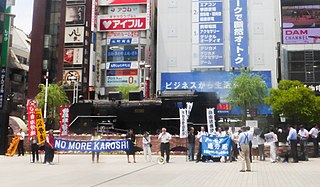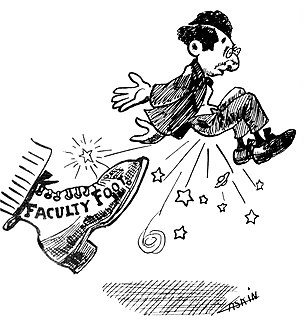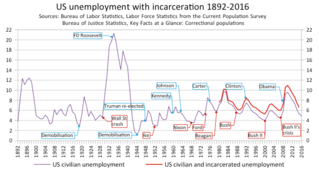
The Cessna Aircraft Company was an American general aviation aircraft manufacturing corporation headquartered in Wichita, Kansas. Best known for small, piston-powered aircraft, Cessna also produced business jets. For many years the company was one of the highest-volume producers of general aviation aircraft in the world. Founded in 1927, it was purchased by General Dynamics in 1985, then by Textron, Inc., in 1992. In March 2014, when Textron purchased the Beechcraft and Hawker Aircraft businesses, Cessna ceased operations as a subsidiary company and joined the others as one of the three distinct brands produced by Textron Aviation.

The economy of Spain is the world's thirteenth-largest by nominal GDP as well as one of the largest in the world by purchasing power parity. The country is a member of the European Union, the Organization for Economic Co-operation and Development and the World Trade Organization. Spain has a capitalist mixed economy. The Spanish economy is the fifth-largest in Europe behind Germany, United Kingdom, Italy and France as well as the fourth-largest in the eurozone based on nominal GDP statistics. In 2012, Spain was the twelfth-largest exporter in the world and the sixteenth-largest importer. Spain is listed 26th in the United Nations Human Development Index and 30th in GDP per capita by the World Bank, therefore it is classified as a high income economy and among the countries of very high human development. According to The Economist, Spain has the world's 10th highest quality of life.

Karoshi (過労死), which can be translated literally as "overwork death" in Japanese, is occupational sudden mortality. The major medical causes of karoshi deaths are heart attack and stroke due to stress and a starvation diet. This phenomenon is also widespread in other parts of Asia.
Employment is a relationship between two parties, usually based on a contract where work is paid for, where one party, which may be a corporation, for profit, not-for-profit organization, co-operative or other entity is the employer and the other is the employee. Employees work in return for payment, which may be in the form of an hourly wage, by piecework or an annual salary, depending on the type of work an employee does or which sector they are working in. Employees in some fields or sectors may receive gratuities, bonus payment or stock options. In some types of employment, employees may receive benefits in addition to payment. Benefits can include health insurance, housing, disability insurance or use of a gym. Employment is typically governed by employment laws, organisation or legal contracts.

Underemployment is the underuse of a worker because a job does not use the worker's skills, is part-time, or leaves the worker idle. Examples include holding a part-time job despite desiring full-time work, and overqualification, in which the employee has education, experience, or skills beyond the requirements of the job.
Unemployment benefits are payments made by authorized bodies to unemployed people. In the United States, benefits are funded by a compulsory governmental insurance system, not taxes on individual citizens. Depending on the jurisdiction and the status of the person, those sums may be small, covering only basic needs, or may compensate the lost time proportionally to the previous earned salary.
A layoff is the temporary suspension or permanent termination of employment of an employee or, more commonly, a group of employees for business reasons, such as personnel management or downsizing an organization. Originally, layoff referred exclusively to a temporary interruption in work, or employment but this has evolved to a permanent elimination of a position in both British and US English, requiring the addition of "temporary" to specify the original meaning of the word. A layoff is not to be confused with wrongful termination. Laid off workers or displaced workers are workers who have lost or left their jobs because their employer has closed or moved, there was insufficient work for them to do, or their position or shift was abolished. Downsizing in a company is defined to involve the reduction of employees in a workforce. Downsizing in companies became a popular practice in the 1980s and early 1990s as it was seen as a way to deliver better shareholder value as it helps to reduce the costs of employers. Indeed, recent research on downsizing in the U.S., UK, and Japan suggests that downsizing is being regarded by management as one of the preferred routes to help declining organizations, cutting unnecessary costs, and improve organizational performance. Usually a layoff occurs as a cost cutting measure.
Flextime is a flexible hours schedule that allows workers to alter workday start and finish times. In contrast to traditional work arrangements that require employees to work a standard 9 a.m. to 5 p.m. day, flextime typically involves a "core" period of the day during which employees are required to be at work, and a "bandwidth" period within which all required hours must be worked. The working day outside of the "core" period is "flexible time", in which employees can choose when they work, subject to achieving total daily, weekly or monthly hours within the "bandwidth" period set by employers, and subject to the necessary work being done. The total working time required of employees on flextime schedules is the same as that required under traditional work schedules. A flextime policy allows staff to determine when they will work, while a flexplace policy allows staff to determine where they will work. Advantages include allowing employees to coordinate their work hours with public transport schedules, with the schedules of their children, and with daily traffic patterns to avoid high congestion times such as rush hour. Some claim that flexible working will change the nature of the way we work. The idea of flextime was invented by Christel Kammerer.

Termination of employment is an employee's departure from a job and the end of an employee's duration with an employer. Termination may be voluntary on the employee's part, or it may be at the hands of the employer, often in the form of dismissal (firing) or a layoff. Dismissal or firing is usually thought to be the fault of the employee, whereas a layoff is usually done for business reasons outside the employee's performance.

Dismissal is the termination of employment by an employer against the will of the employee. Though such a decision can be made by an employer for a variety of reasons, ranging from an economic downturn to performance-related problems on the part of the employee, being fired has a strong stigma in some cultures.
The early 2000s recession was a decline in economic activity which mainly occurred in developed countries. The recession affected the European Union during 2000 and 2001 and the United States from March to November 2001. The UK, Canada and Australia avoided the recession, while Russia, a nation that did not experience prosperity during the 1990s, in fact began to recover from said situation. Japan's 1990s recession continued. This recession was predicted by economists, because the boom of the 1990s slowed in some parts of East Asia during the 1997 Asian financial crisis. The recession in industrialized countries was not as significant as either of the two previous worldwide recessions. Some economists in the United States object to characterizing it as a recession since there were no two consecutive quarters of negative growth.
In the United States, a furlough is a temporary leave of employees due to special needs of a company or employer, which may be due to economic conditions at the specific employer or in the economy as a whole. These involuntary furloughs may be short or long term, and many of those affected may seek other temporary employment during that time.
Employment protection legislation (EPL) includes all types of employment protection measures, whether grounded primarily in legislation, court rulings, collectively bargained conditions of employment, or customary practice. The term is common among circles of economists. Employment protection refers both to regulations concerning hiring and firing.
Unreported employment; working under the table, off the books, cash-in-hand or illicit work is illegal employment that is not reported to the government. The employer or the employee often does so for tax evasion or avoiding or violating other laws. The working contract is made without social security costs, and does typically not provide health insurance, paid parental leave, paid vacation or pension funds. It is a part of what has been called the underground economy, shadow economy, black market or the non-observed economy.
A job guarantee (JG) is an economic policy proposal aimed at providing a sustainable solution to the dual problems of inflation and unemployment. Its aim is to create full employment and price stability, by having the state promise to hire unemployed workers as an employer of last resort (ELR).
Beginning in 2008 many nations of the world enacted fiscal stimulus plans in response to the Great Recession. These nations used different combinations of government spending and tax cuts to boost their sagging economies. Most of these plans were based on the Keynesian theory that deficit spending by governments can replace some of the demand lost during a recession and prevent the waste of economic resources idled by a lack of demand. The International Monetary Fund recommended that countries implement fiscal stimulus measures equal to 2% of their GDP to help offset the global contraction. In subsequent years, fiscal consolidation measures were implemented by some countries in an effort to reduce debt and deficit levels while at the same time stimulating economic recovery.

Unemployment in the United States discusses the causes and measures of U.S. unemployment and strategies for reducing it. Job creation and unemployment are affected by factors such as economic conditions, global competition, education, automation, and demographics. These factors can affect the number of workers, the duration of unemployment, and wage levels.
The Great Recession in the United States was a severe financial crisis combined with a deep recession. While the recession officially lasted from December 2007 to June 2009, it took many years for the economy to recover to pre-crisis levels of employment and output. This slow recovery was due in part to households and financial institutions paying off debts accumulated in the years preceding the crisis along with restrained government spending following initial stimulus efforts. It followed the bursting of the housing bubble, the housing market correction and subprime mortgage crisis.
Job losses caused by the Great Recession refers to jobs that have been lost worldwide within people since the start of the Great Recession. In the US, job losses have been going on since December 2007, and it accelerated drastically starting in September 2008 following the bankruptcy of Lehman Brothers. By February 2010, the American economy was reported to be more shaky than the economy of Canada. Many service industries have reported dropping their prices in order to maximize profit margins. This is an era in which employment is becoming unstable, and in which being either underemployed or unemployed is a common part of life for many people.

Youth unemployment is the situation of young people who are looking for a job, but cannot find a job, with the age range being that defined by the United Nations as 15–24 years old. An unemployed person is defined as someone who does not have a job but is actively seeking work. In order to qualify as unemployed for official and statistical measurement, the individual must be without employment, willing and able to work, of the officially designated "working age" and actively searching for a position. Youth unemployment rates tend to be higher than the adult rates in every country in the world.






